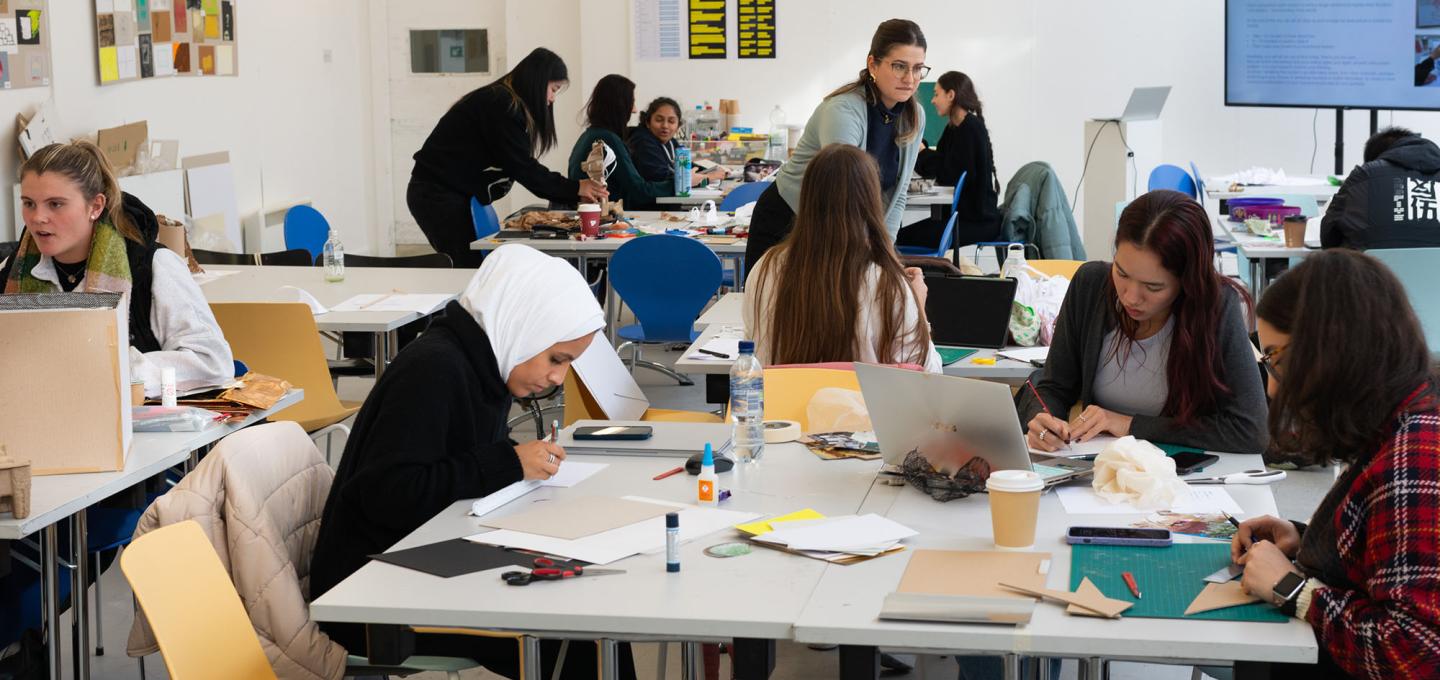Interior design is a well-established profession within the creative industries which offers an exciting range of career opportunities across the globe.
Our graduates possess many transferable skills that allow them to diversify career paths across a wide range of associated fields, including:
- Interior design practice
- Multi-disciplinary design agencies
- Architecture
- Lighting design
- Exhibition & interpretation
- Brand & experiential
- Other related roles such as furniture, specification, product & materials (sales & manufacture)
In recent years, other career destinations include:
- Film and TV (production & set design)
- Computer game design
- Theatre set design
Many of our graduates also opt to continue into postgraduate design education and teaching.
We have a proven track record of employability, with former students taking on influential roles in design studios around the world. Recent graduates have, for example, gained employment at:
- Heatherwick Studio
- 74
- Form Design Consultants
- Prada
- Kengo Kuma
- ICA
- Soho House
Careers Service
Our Careers Service can help you to fully develop your potential and achieve your future goals.
The Careers Service supports you not only while you are studying at the University, but also for up to two years after you finish your studies.
With the Careers Service, you can:
- access digital resources to help you understand your skills and strengths
- try different types of experiences and reflect on how and what you develop
- get help finding work, including part-time jobs, vacation work, internships and graduate jobs
- attend careers events and practice interviews
- get information and advice to help you make informed decisions
Visit the Careers Service website
Further study
After you complete your programme, you may want to go onto further study at Edinburgh or a different university. You could progress to:
- a masters degree
- a postgraduate diploma or certificate
- a PhD
- a second undergraduate degree
Find out about options for further study
Postgraduate degrees you might be interested in could include:














